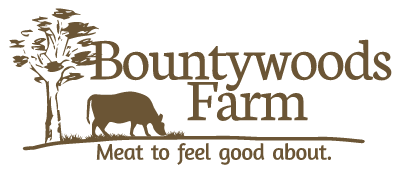We have decided not to get organic certification for our farm at this time. You may wonder why not; wouldn’t it be a Nice Thing To Do?
I suppose it would be nice to have a license to use the term “organic”. (For your information, we are not allowed to call our farm “organic” unless we pay the fee to one of the organizations.) But is this license really worth the price?
We have always had a keen interest in giving natural processes a chance to flourish. Although we believe that the perfect creation of God was marred when the first man, Adam, sinned against his Creator and was given the challenge of dealing with weeds, we still have to do our best as good stewards of creation in our interactions with these weeds and pests. If we ignore biology, it will backfire on us. Plants and animals were given an amazing resilience (which can be good if they are “beneficial” ones, and not so good if they are eating or out-competing our crop!). If we blindly dump toxins on the land, the living things will respond by trying to build resistance – the survival instinct. We will suffer from the effects of the toxins on our health, and from the many ways that the natural system will fight back.
So we are definitely not against the organic movement. However, one problem with being certified ‘organic’ is that it does not automatically produce a holistic, health-sustaining mindset in the farmer. We know that some farmers grow ‘organic’ crops and animals mostly for the higher dollar. They will follow the standards to satisfy the inspector, but may not be actively monitoring and working with the natural system. Hopefully most are really caring for the soil, plants and animals in their charge. But it is easy to get caught up in trying to “make the grade”, and being satisfied with that.
There is so much more to sustainable land use than what is covered in the organic standards. We believe that we as farmers also have a responsibility to encourage diversity of plants, beneficial insects, birds and wildlife. Many organic farms grow only a few crops, in large fields harvested by machinery. This may not be all bad, but it does not encourage as many species of flora and fauna as does a permaculture layout that is modeled after the best performing natural systems. Besides, large machinery uses larger amounts of fuels, and requires large mechanized factories to produce. We would rather see many people employing their hands in satisfying manual labor.
For us, organic certification would mean a large expenditure of time in paper work and also money, that could be much better spent tending to our property. The purpose of the documentation is to provide a convenient method for the certification agency to evaluate the farm operation. This is necessary, of course, if a farmer wants to sell wholesale produce or meats to a distributor or retailer. I’m sure there is a need for these large retailers, for those consumers that require convenience above all else. But we as farmers would rather deal directly with real people who care about where their food comes from. We value relationships, and knowing that our stewardship efforts are of service to others.
Since we are dealing directly with you, the customer, we have the advantage of not needing a third party to document what we do. You can see what we do, and we welcome any questions you may have. Instead of documentation, we prefer to allow our customers to “certify” us.
We avoid toxic chemicals, GMO’s, and such things. We try to improve the soil. But we are aiming to go beyond organic. We are constantly learning by reading and observation; the best ways to produce an abundance of clean, healthy food and other products. We will try to do this in a way that takes into consideration the good of peoplefirst and foremost; and also animals, plants, the environment that we live in. To do this, we are using some of the time and money that we are saving by not going through the process of certification every year.
We will do the best we know for our own health, your health, the health of the soil and the natural environment, and of the animals in our care. In fact, we believe that our great Creator God sees everything we do. We desire to do as this verse in the Bible says: “Whatever you do, do it heartily, as to the Lord…” (Colossians 3:23 )
